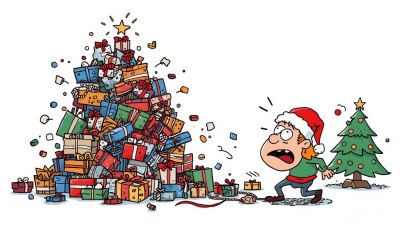The Power of Forgiveness in Love and Friendship
Explore the transformative power of forgiveness in love and friendship. Learn how letting go of grudges can strengthen your relationships, promote emotional healing, and build deeper connections with those you care about!

This image was created with the assistance of Playground AI
Forgiveness is a powerful tool that can heal wounds, restore relationships, and deepen connections. 🌟❤️
In both love and friendship, learning to forgive can transform your relationships and promote emotional well-being. Here’s a guide to understanding the power of forgiveness and how to apply it in your life.
Why Forgiveness Matters 🌈💖
1. Promotes Emotional Healing: Holding onto grudges and resentment can weigh heavily on your heart. Forgiving others allows you to release negative emotions and heal emotionally.
Example: “By forgiving my friend for their mistake, I felt a huge weight lifted off my shoulders and began to feel more at peace.”
2. Strengthens Relationships: Forgiveness helps rebuild trust and strengthen the bond between you and your loved ones. It shows that you value the relationship enough to move past the hurt.
Example: “Forgiving my partner for their mistake brought us closer and made our relationship stronger.”
3. Enhances Personal Growth: Forgiving others is an act of personal growth and maturity. It helps you develop empathy, understanding, and a broader perspective on human imperfections.
Example: “Forgiving my friend helped me grow as a person and understand that everyone makes mistakes.”
4. Reduces Stress and Anxiety: Letting go of anger and resentment can reduce stress and anxiety. It promotes a sense of calm and improves your overall mental health.
Example: “Once I forgave my partner, I noticed a significant decrease in my stress levels and felt much more relaxed.”
Steps to Forgiveness 🌟🛤️
1. Acknowledge the Hurt: The first step in forgiveness is acknowledging the pain and hurt caused by the other person. Allow yourself to feel the emotions fully.
Example: “I felt deeply hurt by my friend’s actions, and it’s important to recognize that pain.”
2. Reflect on the Situation: Take time to reflect on the situation and understand why it happened. Consider the circumstances and the other person’s perspective.
Example: “Reflecting on the argument with my partner, I realized they were under a lot of stress at the time.”
3. Communicate Your Feelings: Have an open and honest conversation with the person who hurt you. Express your feelings without blaming or accusing them.
Example: “I told my friend how their actions made me feel and why it hurt me so much.”
4. Choose to Forgive: Forgiveness is a conscious choice. Decide to let go of the resentment and anger, and commit to moving forward.
Example: “I chose to forgive my partner because I value our relationship and want to move past this.”
5. Focus on the Positive: Focus on the positive aspects of the relationship and the good times you’ve shared. This helps to shift your mindset from the hurt to the healing.
Example: “Remembering the wonderful moments with my friend helped me focus on the positive and forgive them.”
6. Let Go of Grudges: Holding onto grudges only prolongs the pain. Let go of the past and allow yourself to heal.
Example: “I decided to let go of the grudge I held against my partner and focus on rebuilding our relationship.”
7. Rebuild Trust: Forgiveness is the first step; rebuilding trust is the next. Be patient and give the relationship time to heal and grow stronger.
Example: “After forgiving my friend, we took small steps to rebuild our trust and strengthen our bond.”
Forgiveness in Practice 🌟💫
1. Daily Acts of Kindness: Practice forgiveness in everyday life by being kind and compassionate, even in small interactions. This fosters a forgiving and positive mindset.
Example: “Offering a sincere apology and being kind even when someone makes a mistake helps create a forgiving environment.”
2. Self-Forgiveness: Forgiving yourself is just as important as forgiving others. Acknowledge your mistakes, learn from them, and let go of self-blame.
Example: “I forgave myself for the mistakes I made in my relationship and focused on being a better partner.”
3. Seek Professional Help: If forgiveness feels particularly challenging, consider seeking help from a therapist. They can provide tools and guidance to navigate the process.
Example: “Talking to a therapist helped me understand my feelings and guided me towards forgiveness.”
The Transformative Power of Forgiveness 🌟❤️
Forgiveness is a powerful act that can transform your relationships and your life. By letting go of grudges and embracing forgiveness, you promote emotional healing, strengthen your connections, and pave the way for a healthier, happier life.
Remember, forgiveness doesn’t mean forgetting or condoning the hurtful behavior. It’s about freeing yourself from the burden of anger and resentment and choosing to move forward with love and compassion. Here’s to the healing power of forgiveness and the deeper, more meaningful relationships it brings! 🌈💖
Use these insights to harness the power of forgiveness in your relationships. Let go of grudges, promote emotional healing, and build deeper connections with those you care about. Embrace the transformative power of forgiveness for a happier, healthier life. Happy healing! 🌟😊





















